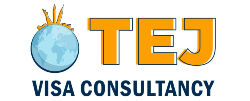BSc Nursing in Canada: Path to Rewarding Healthcare Career

BSc Nursing in Canada
- Pursuing a Bachelor of Science in Nursing (BSc Nursing) degree in Canada offers Indian students a remarkable opportunity to enter the healthcare field. Canadian universities are renowned for their high education standards, providing a comprehensive academic experience and exposure to advanced medical practices.
- Approximately 12,780 students graduated in 2021 from entry-to-practice programs for registered nurses, according to the Canada Association of Schools of Learning.
Ø Advantages of Studying BSc Nursing in Canada
Studying BSc Nursing in Canada has many advantages. Some of the most notable advantages include:
1. A world-class education:
Canada is home to some of the best nursing schools in the world. So, if you want a top-notch education, Canada is the place to be.
2. Excellent job prospects:
There is a high demand for qualified nurses in Canada. So, if you graduate from a nursing program in Canada, you will have excellent job prospects.
3. A high salary:
Nurses in Canada earn a very competitive salary. So, Canada is the place to be if you want to earn a high salary.
4. A great lifestyle:
Canada is a great place to live. It has a high quality of life and a low cost of living. So, Canada is the place to be if you want to enjoy a great lifestyle.
5. A welcoming environment:
Canada is a very welcoming country. If you want to study in a country where you will feel welcome, Canada is the place to be.
Ø Eligibility and Requirements for BSc Nursing in Canada
Eligibility:
- High School Diploma or equivalent (requirements may vary by province and university)
- Meeting the minimum grade point average (GPA) requirement set by the university (typically around 70-75%)
- English language proficiency test scores (e.g., IELTS or TOEFL) for international students
Requirements:
- Completion of prerequisite courses:
Some universities may require specific high school courses (e.g., English, Math, Biology, and Chemistry) with minimum grades to be eligible for the BSc Nursing program.
- Standardized tests:
Some universities may require applicants to take the CASPer (Computer-Based Assessment for Sampling Personal Characteristics) test to evaluate non-academic skills and personal characteristics.
- Supplementary application:
Applicants may need to submit a supplementary application, including a personal statement or essay outlining their interest in nursing, relevant experiences, and career goals.
- Reference letters:
Universities may require one or more reference letters from teachers, employers, or other individuals who can attest to the applicant’s character and suitability for the nursing profession.
- Criminal record check:
Students admitted to nursing programs are typically required to undergo a criminal record check or vulnerable sector screening to ensure patient safety.
- Immunizations and health requirements:
Nursing students may be required to provide proof of immunizations and meet specific health requirements to ensure they can participate in clinical placements safely.
Ø Application Process in Canada for BSc Nursing Course
- The application process for a BSc Nursing in Canada can vary among universities and provinces. However, here are some general bullet points outlining the typical steps involved in applying for a Bachelor of Science in Nursing (BScN) program in Canada:
Research universities
Explore different universities offering BSc Nursing programs in Canada. Consider factors such as program reputation, curriculum, location, admission requirements, and tuition fees.
Review eligibility criteria
Familiarize yourself with the eligibility criteria for each university, including high school diploma requirements, minimum grade point average (GPA), prerequisite courses, and English language proficiency.
Gather required documents
Collect all necessary documents for the application, which may include:
High school transcripts: Request official transcripts from your high school, which demonstrate your academic performance.
Proof of English language proficiency
If applicable, provide official test scores from English language proficiency exams like IELTS or TOEFL.
Prerequisite course documentation: Prepare any documentation required to prove completion of prerequisite courses.
Personal statement or essay
Write a well-crafted personal statement or essay that showcases your motivation to pursue nursing, relevant experiences, and career goals.
Reference letters
Request reference letters from teachers, employers, or other individuals who can attest to your character and suitability for the nursing profession.
Supplementary application
If required by the university, complete any supplementary applications or forms.
Pay application fee
Pay the application fee as specified by the university. The fee can vary among institutions.
Track application status: Keep track of your application status through the university’s admission portal. Monitor any communication from the university regarding additional documentation, interviews, or next steps.
Attend interviews (if applicable)
Some universities may require interviews as part of the application process. Prepare for interviews by researching common nursing interview questions and practicing your responses.
Acceptance and enrollment
If you receive an offer of admission, carefully review the acceptance letter and any conditions attached. Follow the instructions provided to accept the offer and secure your spot in the BScN program.
Arrange finances
Once accepted, make necessary arrangements for tuition payment, student loans, scholarships, or other financial matters.
Prepare for the program
Prior to starting the BScN program, be sure to complete any pre-program requirements, such as health checks, immunizations, and criminal record checks as required by the university.
Ø Top Universities in Canada for BSc Nursing
- After knowing the application process and eligibility requirements for BSc Nursing in Canada, you must also know the top universities to pursue this course.
- Choosing the right university is a pivotal decision that will majorly impact your future career. If you’re considering pursuing a BSc in Nursing, you’ll want to choose a school that will give you the best possible education and prepare you for a successful healthcare career.
To help you decide, we’ve compiled a list of the top universities in Canada for BSc Nursing programs. These schools are renowned for their excellent nursing programs and will give you the skills and knowledge you need to succeed in your career.
1. University of Toronto
2. McGill University
3. University of Alberta
4. University of British Columbia
5. Dalhousie University
6. McMaster University
Ø Cost of BSc Nursing in Canada
- One important consideration when planning your education is the cost of attendance.
Tuition Fees
The cost of tuition will vary depending on the province or territory in which you study, as well as the type of institution you choose. For example, tuition for a nursing program at a public college in Ontario will be lower than tuition for a similar program at a private university in British Columbia.
Generally speaking, you can expect to pay between $5,000 and $15,000 per year in tuition for a BSc in Nursing.
Books and Supplies
In addition to tuition, you’ll also need to budget for the cost of books and supplies. This will vary depending on your chosen program and the number of courses you take, but you can expect to spend between $500 and $1,500 per year on books and supplies.
Living Expenses
Of course, you’ll also need to factor in the cost of living while studying. This will include expenses such as rent, food, transportation, and entertainment. The cost of living will vary depending on the city or town you choose to study. For example, the cost of living in Toronto is higher than the cost of living in Halifax.
You can expect to spend between $8,000 and $12,000 per year on living expenses.
Other Costs
Consider a few other costs when budgeting for your BSc in Nursing. These include the cost of your clinical placement (if applicable), the cost of licensing exams, and the cost of professional membership fees.
The total cost of your BSc in Nursing will vary depending on the province you study, the type of institution you choose, and your circumstances. However, you can expect to pay between $20,000 and $40,000 for
Ø Career Opportunities for BSc Nursing in Canada
- The scope of BSc Nursing in Canada is immense, and there are plenty of career opportunities. The demand for nurses is constantly increasing, and there is a need for more nurses in the country. This creates a great opportunity for those who want to pursue a career in nursing.
- There are many different types of nursing careers that you can pursue in Canada. Here are 7 of the most popular nursing career options in Canada:
1. Registered Nurse
Registered nurses are the most common type of nurse. They work in hospitals, clinics, and doctor’s offices. They provide direct care to patients and families.
2. Licensed Practical Nurse
Licensed practical nurses work in various settings, including hospitals, long-term care facilities, and clinics. They provide direct care to patients and families.
3. Nurse Anesthetist
Nurse anesthetists work in hospitals and clinics. They administer anesthesia to patients before surgery.
4. Nurse Midwife
Nurse midwives work in hospitals, clinics, and birth centers. They provide care to women during pregnancy, labor, and delivery.
5. Nurse Practitioner
Nurse practitioners work in various settings, including hospitals, clinics, and doctor’s offices. They provide direct care to patients and families.
6. Nursing Instructor
Nursing instructors work in colleges and universities. They teach nursing students.
7. Research Nurse
Research nurses work in hospitals, clinics, and research laboratories. They research new treatments and therapies.
Ø Scholarships for BSc Nursing in Canada
- This year, the Canadian government offers eight scholarships for students pursuing a BSc in Nursing. These scholarships are available to Canadian citizens and international students and range in value from $5,000 to $28,000.
The eight scholarships are as follows:
1. The Canadian Nurses Association Scholarship is worth $5,000. It is available to Canadian citizens or permanent residents enrolled in a full-time nursing program at a Canadian university.
2. The Health Canada Scholarship for Indigenous Peoples is worth up to $28,000. It is available to Indigenous peoples enrolled in a full-time nursing program at a Canadian university.
3. The CIHR Frederick Banting and Charles Best Canada Graduate Scholarships are worth $17,500 each. They are available to Canadian citizens or permanent residents enrolled in a full-time nursing program at a Canadian university.
4. The Canadian Association of Schools of Nursing Scholarships are worth $3,000 each. They are available to Canadian citizens or permanent residents enrolled in a full-time nursing program at a Canadian university.
5. The Canadian Nurses Foundation Scholarship is worth $5,000. It is available to Canadian citizens or permanent residents enrolled in a full-time nursing program at a Canadian university.
6. The Canadian Red Cross Society Scholarship is worth $5,000. It is available to Canadian citizens or permanent residents enrolled in a full-time nursing program at a Canadian university.
7. The Canadian Nurses Association Student Bursary is worth $1,000. It is available to Canadian citizens or permanent residents enrolled in a full-time nursing program at a Canadian university.
8. The Canadian Nurses Foundation Bursary is worth $1,000. It is available to Canadian citizens or permanent residents enrolled in a full-time nursing program at a Canadian university.






